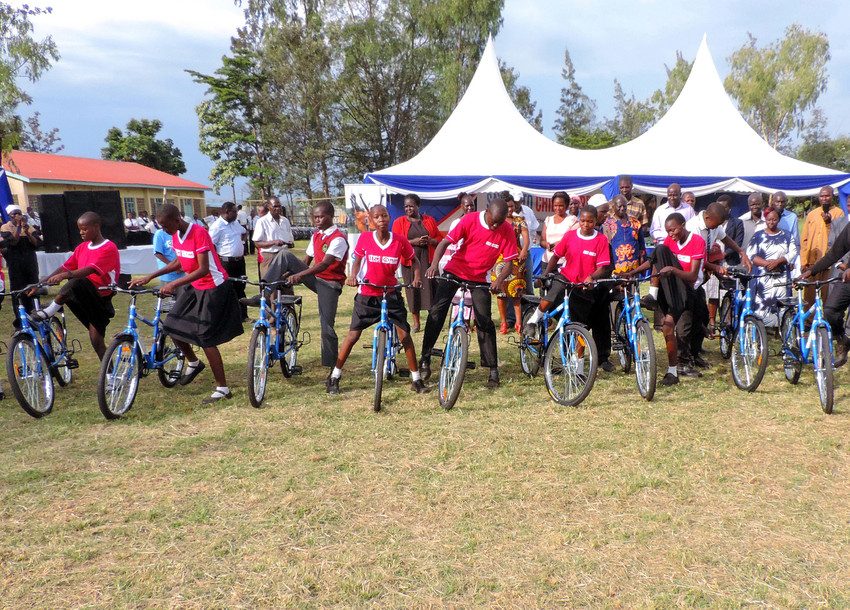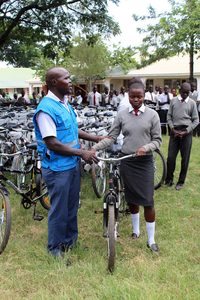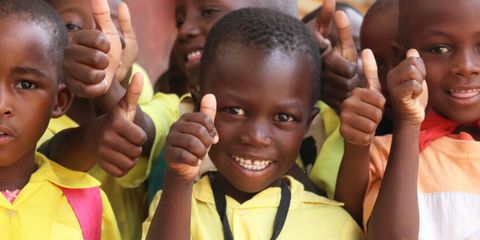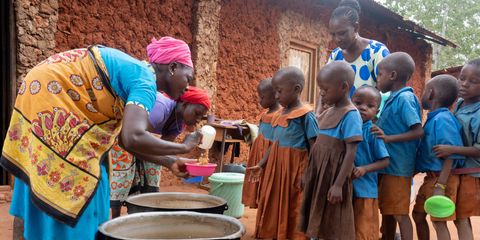Bicycles help children get to school
Many students in rural Kenya walk up to 15km each day to get to school. Plan International Kenya has partnered with World Bicycle Relief to donate over 1,000 bicycles to help students get to school in Kisumu County.

Girls testing their new bicycles donated by Plan International.
In rural Kenya, many students walk distances of up to 15km to get to school on a daily basis causing them to be late and tired. Some begin walking to school as early at 5am in the morning, leading to poor performance, absenteeism and high dropout rates.
Girls sometimes ask for lifts from boda boda riders (motorbike taxis) who in turn seek sexual favours, increasing their chances of teen pregnancy and early marriage. Other students walk along paths that leave them at risk of being attacked by wild animals.
Plan International Kenya has partnered with World Bicycle Relief to donate over 1,000 bicycles to students in Kisumu County. The Bicycle for Education Empowerment Programme aims to improve school attendance and performance, while reducing dropouts due to early pregnancies.
THE JOY OF OWNING A BICYCLE
Sylvia is among the children who have received a bicycle. She said: “It will help me run away from monkeys that harass me on my way to school.”
For Achieng, a teenage mother who has to wake up early and care for her son before she leaves for school, her new bicycle saves her precious time. “I will now be able to prepare my son without anxiety and fear of arriving late at school,” she said.
I will now be able to prepare my son without anxiety and fear of arriving late at school
Veronicah, another beneficiary, said: “This is a double blessing to me. Today, I have received a bicycle, which will ease the long distance I must travel to school everyday. I have also received money to pay for school fees from Plan International. This is a joyful moment.”
Of those who have received bicycles, 70% are girls who are often exposed to violations when they have to walk long distances to school.
COMMUNITY RUN PROJECT

To ensue the sustainability of the project, community members have been trained as bicycle mechanics to repair and maintain the bicycles, creating extra income for the community. Students who receive the bikes sign contracts to use them primarily for improving their journey to school. The bicycles become their personal property after they have completed secondary education.
The local community has also been incorporated into the management of the programme through Bicycle Supervisory Committees, which act as the focal point for implementation of the programme. The committee helps to identify children who would benefit most from a bicycle, monitors the usage of the bicycles and oversees the work of the field mechanics.


